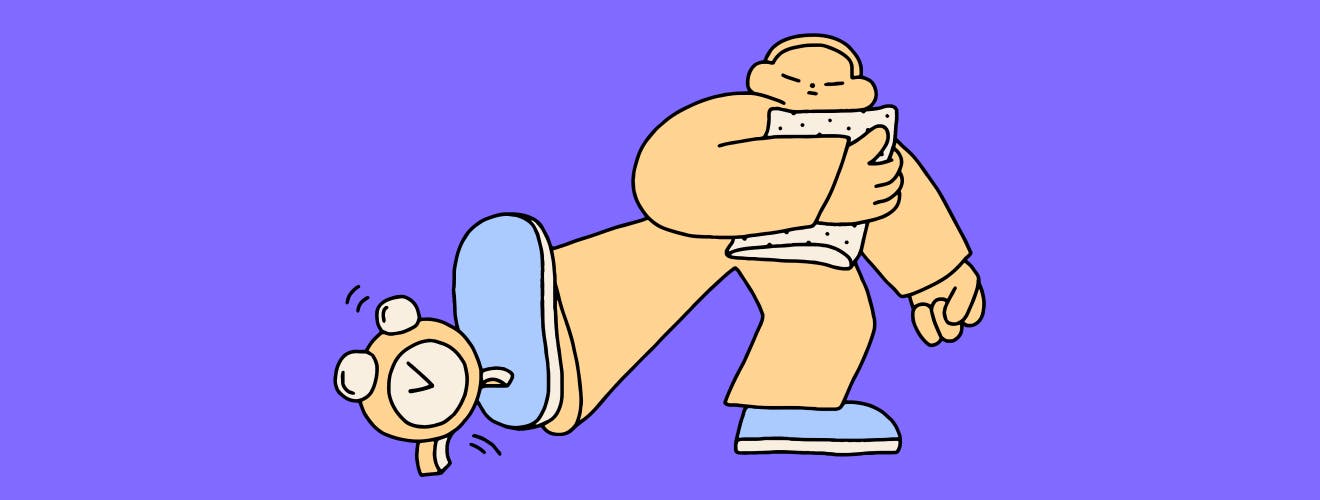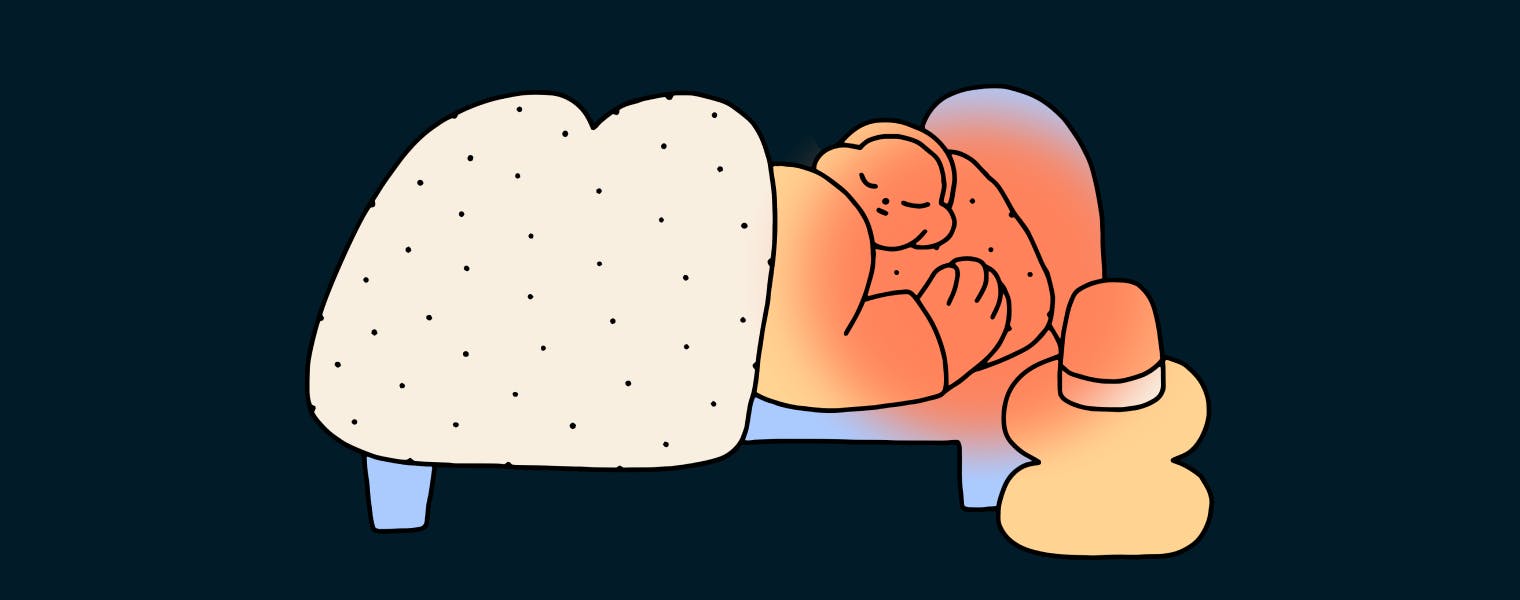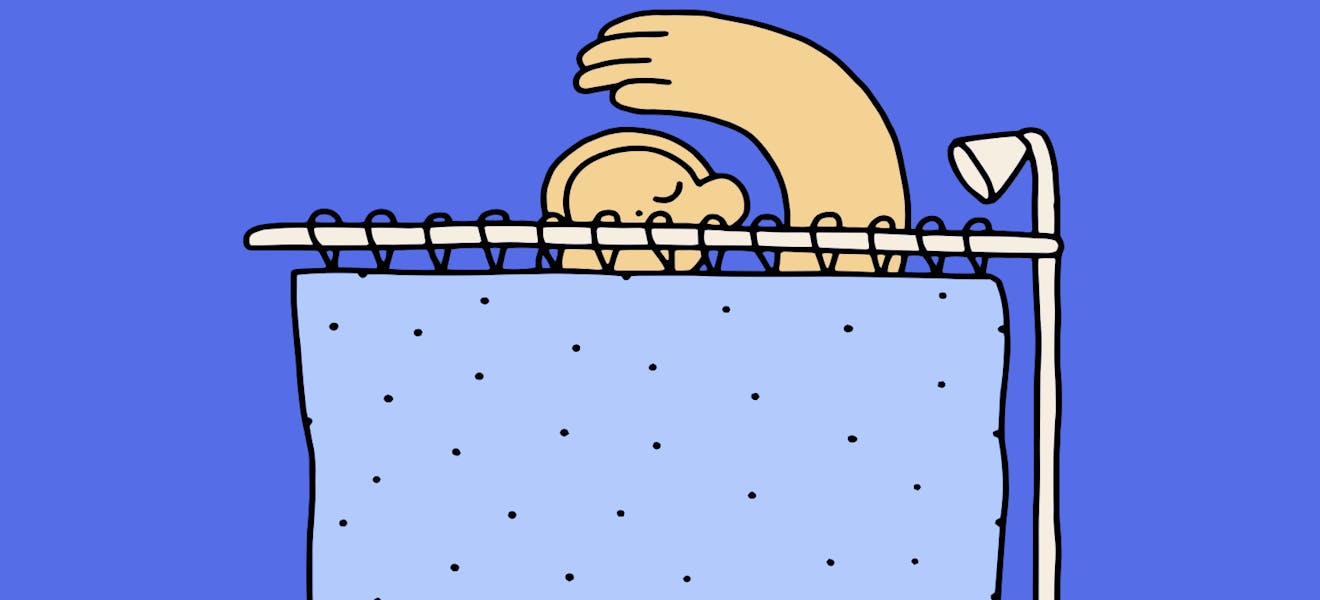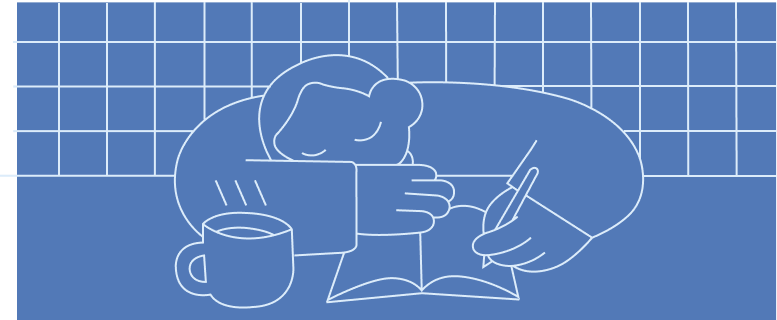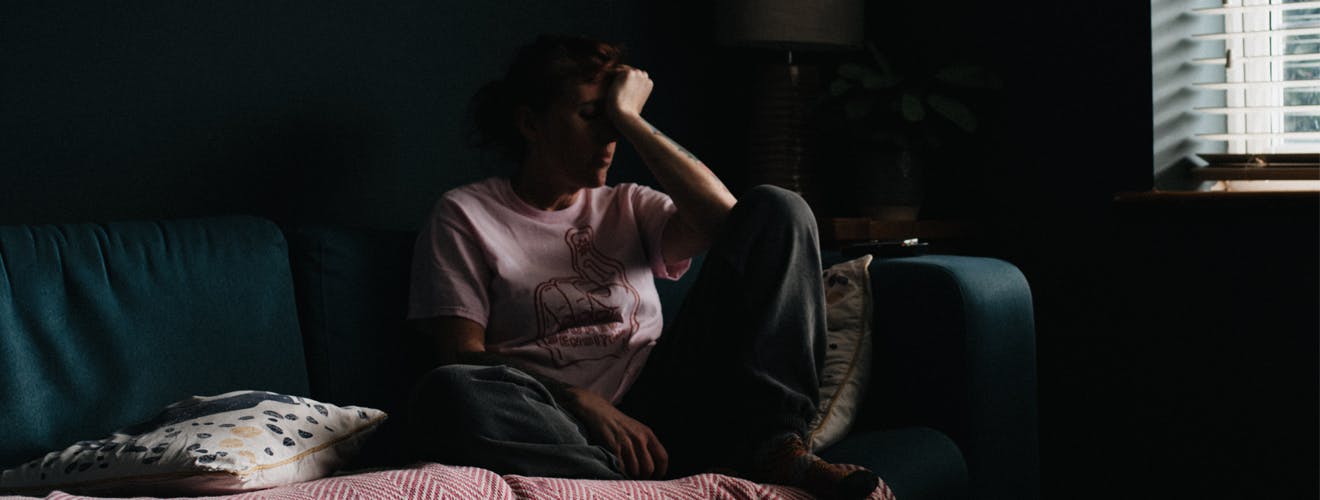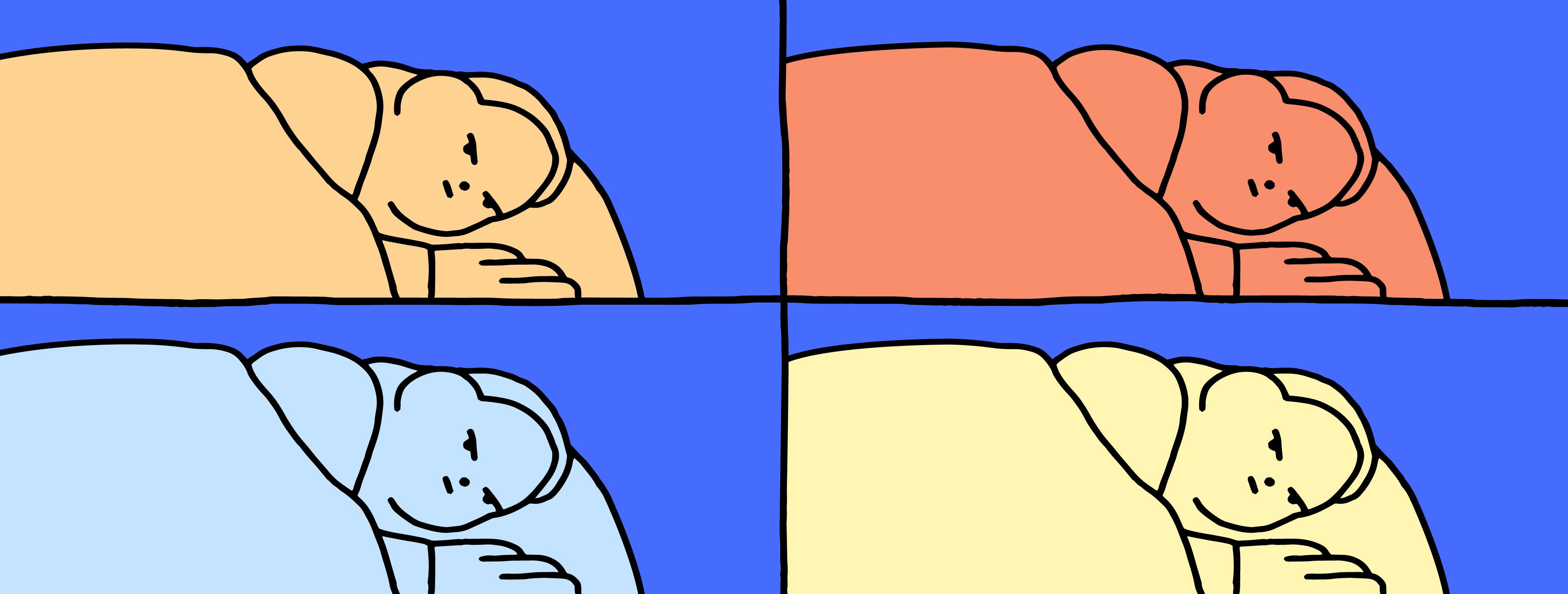Is Insomnia Genetic?

If you consistently experience trouble sleeping, you've probably wondered what's causing your chronic insomnia. Maybe it's stress, or maybe it's your diet. Or, maybe it's genetic. As it turns out, those sleepless nights might actually be something you can blame on Mom and Dad. Some findings suggest that insomnia does have a genetic component. Of course, there are other causes to consider before picking up the phone to call the 'rents. Below, we'll try to help you determine why you're having such a hard time sleeping.
Does Insomnia Run in the Family?
The combination of the genes you've inherited from your parents determines lots of different things, like your hair color, or whether you have dimples. But most of us haven't considered the connection between our gene expression and our ability to get a good night's sleep.
It's true that anxiety disorders, lifestyle, medications, and environmental factors can all contribute to insomnia. But studies now suggest that genetic sleep disorders are a thing. Today, the scientific community firmly stands behind the idea that genetics are able to influence our sleep patterns in the same way they can affect temperament, illness, and appearance.
Genetic Risk Factors For Insomnia
In a 2019 study, researchers working in the field of psychiatric and behavioral genetics analyzed data that identified regions believed to influence insomnia. They spent a good deal of time reviewing the study of 450,000 participants, which led to the discovery of 57 genetic regions associated with insomnia.
Some of the genes have also been linked to other sleep disorders, such as restless leg syndrome, but that's not all. Genome-wide association studies (GWAS) published in the journal Nature Genetics found insomnia symptoms also increase the risk of conditions like coronary artery disease or psychiatric disorders including major depression.
What Are "Sleepless Genes"?
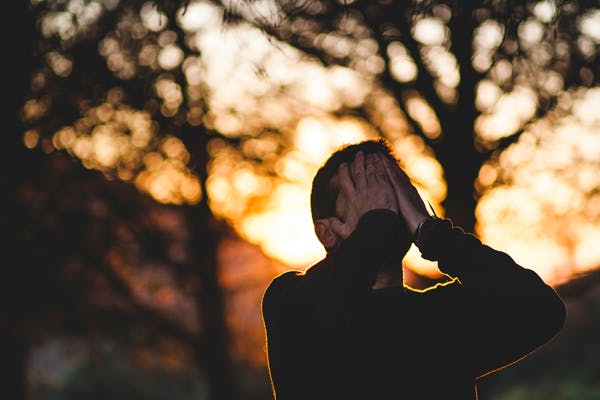
While too few hours of sleep leave most of us lethargic and irritable, others seem to function perfectly fine. And that's not necessarily indicative of their ability to adapt. According to the literature, some people actually carry a gene that allows them to operate on less sleep. Researchers have come to call it the "short sleep gene."
Not only can they perform on less sleep, but individuals who carry the gene are also immune to insomnia symptoms including difficulty falling asleep, brain fog, anxiety, and irritability. For this group, five to six hours of sleep is sufficient for a productive day ahead.
Even more interesting, the data shows that individuals with the short sleep gene experience a lower risk of conditions associated with insomnia, like depression and heart disease.
Gene DEC2
Individuals who carry the gene DEC2 regularly require less than the standard eight hours of sleep. Despite experiencing a lower sleep efficacy score, they are no more likely to experience daytime sleepiness than those with more desirable numbers.
So how does this work, exactly? As it turns out, DEC2 helps control the hormone orexin, which is involved in wakefulness. This gene also helps regulate circadian rhythms. Though individuals carrying the gene may experience less sleep, their sleep quality remains undisturbed.
Twin and family studies have helped demonstrate these effects. In one instance, researchers looked into the sleep patterns associated with a pair of twins, one with gene DEC2 and one without. After sleeping the same amount of time, the twin who carried the mutation regularly outperformed their sibling in a series of cognitive tasks.
ADRB1 Gene
Short sleep genes can also influence sleep regulation. For instance, the ADRB1 mutation happens to impact the neurotransmitters involved in the wake/sleep cycle. More specifically, researchers found that this gene helps increase the activity of wake-promoting brain cells. So, even those individuals with the mutation experience less sleep in general, they're able to perform just fine throughout the day.
Can Stress Also Affect Our Genes?
We trust you're already familiar with how stress affects your body and brain. But did you know that stress also affects your genes? In particular, environmental influences such as chronic stress can change how our genes behave.
Research shows that when chronically stressed, genes that produce inflammation are expressed at higher-than-normal levels, and that's not all. When experiencing chronic stress, genes that could possibly reduce inflammation are also diminished.
This in turn increases the risk for many diseases linked to chronic inflammation including diabetes, obesity, depression, and heart disease. So, how is this at all connected to sleep? Well, stress just happens to be one of the most prominent symptoms of insomnia.
What Else Can Lead to Insomnia?
You know what complications insomnia leads to, but what else leads to insomnia? If your genes aren't to blame, the following may be responsible:
Trauma
Your insomnia may be connected to some kind of trauma you experienced as a child or later in life. Trauma affects health in different ways, and sleep remains high on the list. Studies show that trauma can impact rapid eye movement (REM), the stage of sleep responsible for processing information and storing memories.
Trauma can up the chances of experiencing distressing dreams or nightmares during this stage, leading to interrupted sleep or even insomnia.
Anxiety
Anxiety is a common killer of sleep. It can also cause disturbing dreams, which can further complicate your relationship with sleep. Oftentimes, the two conditions play off each other. That is to say, you're up because you're anxious, and you're anxious because you're awake. Medications and natural supplements are often used to break the cycle.
Poor Sleep Hygiene
Poor sleep hygiene is another surefire way to provoke insomnia. Using electronic devices, drinking caffeine, and eating a heavy meal before bed all affect your ability to fall asleep at night Environmental factors such as bright lights can also interfere with quality sleep. So the next time you feel tempted to entertain these behaviors, remember that the decision will follow you to bed.
Diabetes
Another reason why you may have trouble falling or staying asleep could be insulin resistance. People with diabetes are more likely to struggle at night due to high blood sugar. For example, frequent urination, pain, hunger, and extreme thirst are all things that cause sleepless nights.
Keep in mind that even if you don't have diabetes, chronic insomnia interrupts insulin balance. Insulin imbalance leads to insulin resistance, which can then lead to certain health issues including.... you guessed it, diabetes.
Fall Asleep Fast With Sandland Sleep

Developing insomnia can have serious implications on your overall health. Whether you're born with it or it's something you picked up along the way, it's important to find the right kind of treatment for you.
Remember, your history isn't your destiny. With all-natural ingredients, our all-natural sleep supplements do more than help you fall asleep. They also upgrade the duration and quality of your sleep. Formulated with plant extracts such as peppermint, low-dose melatonin, and all-natural hemp extract, our products work seamlessly by sending natural signals to your body when it's time to sleep. And just like that, you can get the deep sleep you deserve.
The three most common types of insomnia include transient insomnia (which lasts less than one week), acute insomnia (a short-term condition), and chronic insomnia (long-term).
Certain lifestyle changes can help you get rid of insomnia for good. For example, a clean diet, exercise, and reducing stress can all positively influence your sleep. In addition, practicing good sleep hygiene, and taking natural sleep aids can help you achieve quality sleep without interruptions.
